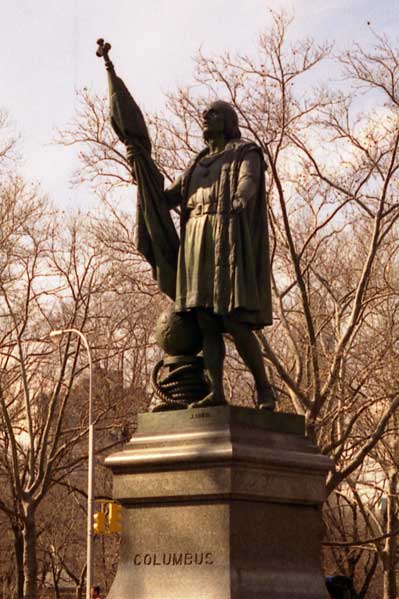Growing up, I remember learning in Elementary school that in 1492 Christopher Columbus was an explorer who sailed the Atlantic ocean and discovered the Americas. In my history book, he was painted as a white man with curly hair, a captain’s hat and fancy clothing.
The true picture of Columbus is a man who not only never stepped a foot in America, but also a man who personally profited from the enslavement and genocide of millions of Indigenous people, including the Taíno people. It wasn’t until I got to High School and took a more advanced history course that I learned the dark past behind Columbus himself.
It’s encouraging that NMU and many states including Michigan have made the decision to recognize Indigenous Peoples’ Day, but I believe we need to take action a step further. In the US we need to immediately rescind the federal recognition of Columbus Day as it stands and instead recognize a day where we educate every American on the plights Indigenous peoples endured.
While a day of celebrating Columbus’s exploration to the Americas goes back to the 18th century, the history behind the US recognition of the day isn’t nearly as old. In 1937, President Franklin Roosevelt officially proclaimed Columbus Day as a national holiday occurring the second Monday in October.
The federal holiday was declared as a result of lobbying efforts from the Knights of Columbus and other catholic organizations. Those who idolize Columbus argue that he was a pioneer who symbolizes the spirit of discovery. They also point to the holiday’s importance to Italian Americans and how it symbolizes the relationship between America and Europe. It is true he stands as a symbol of Europe’s relationship to the Americas, but it is a relationship of colonization and enslavement.
The truth of his intentions, however, can be seen in Columbus’s personal account of his 1492 travel in which he wrote to King Ferdinand of Spain about the land he saw and the people he met: “There I found very many islands, filled with innumerable people, and I have taken possession of them all for their Highnesses, done by proclamation and with the royal standard unfurled, and no opposition was offered to me.” Unfortunately, like many explorers of his time, his primary concern was how he could turn the natural resources and people into profit.
One of Columbus’s objectives was the profit of gold and other precious material that was found on the islands. Even though he planned initially to find a new route to India, shortly before his voyage he signed a deal with the Spanish crown entitling him to 10% of all profits gained from the trading of natural resources. A study done by the Genocide Studies Program at Yale University found that due to the gold mines Columbus helped establish, by the year 1514, only 32,000 of the over one million Taíno people were still alive.
According to a letter Columbus wrote to a friend in 1500, “a hundred castallanoes [a currency of the time] are as easily obtained for a woman as for a farm, and it is very general and there are plenty of dealers who go about looking for girls; those from nine to ten are now in demand.”
Not only was he exploiting Indigenous people through work on the gold mines, but he also showed a lack of objecting to the idea of selling young girls into sex slavery. Even if Columbus didn’t directly sell girls into sex slavery his lack of objecting to the idea and emphasis on the profits to be made is severely troubling. Why would we choose to idolize someone who has such a dark past?
While we can’t undo the past and remove the damage caused, we can make the future a better place for all by recognizing the atrocities that Columbus helped lay the groundwork for. Instead of trying to idolize figures from the past, we should hold them accountable for who they were and what they did. Why would we have a day celebrating a man who forced Indigenous people into slavery and whose ideas were used as a model for other colonizers to come?
With that in mind, this Oct. 12 I encourage everyone to stop recognizing a holiday that idolizes Columbus and instead take the time to learn about the true history of Indigenous peoples in the Americas and the struggles they have endured. This week should be a time for learning and reflection. Reaching out to the Indigenous people in your community, attending Indigenous Peoples’ Day celebrations or simply educating yourself on past injustices are all ways we can help build a stronger community for all.




























